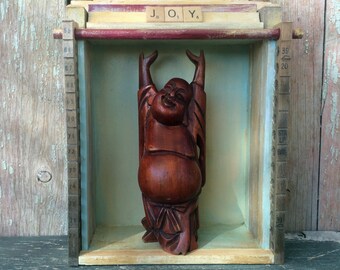Budda Dn Slajd

Jul 13, 2014 - Buddhists can and sometimes even should defend themselves and people around them. However, consider. Protection of arahats (DN 16). No representations of the Buddha were made for about four or five centuries after the death of the Buddha. 12 32 Marks of a Great Man Lakkhana Sutta DN.
The Buddha requested this a basic principle, not to harm life. I really do not understand why people who dislike this simple principle are still wanting to call themselves 'buddhist'. Does it give money?
Moreover, even if one does not really understand the reason for the radicality of this precept: we should take it as a gift. Because it means, by keeping this principle any buddhist signals you need not have fear when you hear his/her feet in the night, forest, in the war (remember only the war in vietnam as reported by Chan Khong): there are some, who do not want kill you.
– Oct 17 '15 at 6:45. If someone is attacking you to kill you should you defend yourself? I think yes, you may. Our religion has never stopped us from doing that.
Would it be ethical to kill an intruder coming into your home? You may stop an intruder forcefully.
Our religion has never stopped us from doing that. But for me, being Buddhist, the answer will not end there. Both (two above lines) questions are based on teaching of Ahimsa (not to injure).
If it is so then it is important to know how we interpret this teaching. Following are some of the points we can consider- • Buddhism is a religion of principles and not rules. Lb link 80211 n driver license. (yes there are rules as code of conduct, but it is not religion of rules).
It teaches you basic principles and you are expected to make the decision on basis of that according to the context. • Buddhism is religion with 'Metta' (unconditional love). You even are expected to love your enemy.
But you are not prohibited from defending yourself. • Ahimsa in Buddhism is not the same as it is in Jainism. These are the points in short based on which I said you can physically defend and you are not stopped by Buddhism from doing so. I don't want to say that you should (or even you can) kill.
2 2006 - Laugh Now Cry Later 2008 - Raw Footage Ice Cube - The Essentials (2008). Ice cube the predator rar. (1986) 01 My Posse (Vocal) 02 Jus 4 The Cash (Vocal) 03 Ill Legal (Vocal) 04 My Posse (Instrumental) 05 Jus 4 The Cash (Instrumental) 06 Ill Legal (instrumental) 1990 - Kill at Will or 1990 - AmeriKKKa's Most Wanted 1991 - Death Certificate 1992 - The Predator 1993 - Lethal Injection 1994 - Bootlegs & B-Sides 1998 - War And Peace Vol.1 part1 part2 2000 - War And Peace Vol.

But you may defend. Ambedkar's discussion on Ahimsa is very enlightening in this regard. You can find it here. It is a good read and the best part is it covers the whole debate in two pages. I also found interesting discussing the same point.
@GokulNC, Though its nice question, I am not answering it here. It will start another discussion. In fact, probably it will be great if you start another discussion with new question. For now I can say only one thing - 'In general, the precept against killing living beings in Buddhism centers around intent, whereas, the Jains take it further and avoid all possible killing.' This is one of the things which we may say represents the difference. This all is according to my limited understanding.
Please correct me if needed! – Nov 24 '15 at 9:50. Buddhists can and sometimes even should defend themselves and people around them. However, consider the following: • If you do it out of anger, you will suffer from the results of this anger. The key is to use violence without any negative feelings but out of active compassion (see the next point) • If you are aware that the attacker wants to kill not only you but also 10 of your companions, less harm will be done if you kill him out of compassion towards your companions rather than if the attacker kills 11 people out of anger and ignorance. You can also feel compassion to this attacker - imagine how much would he have to suffer if he indeed commits those crimes.